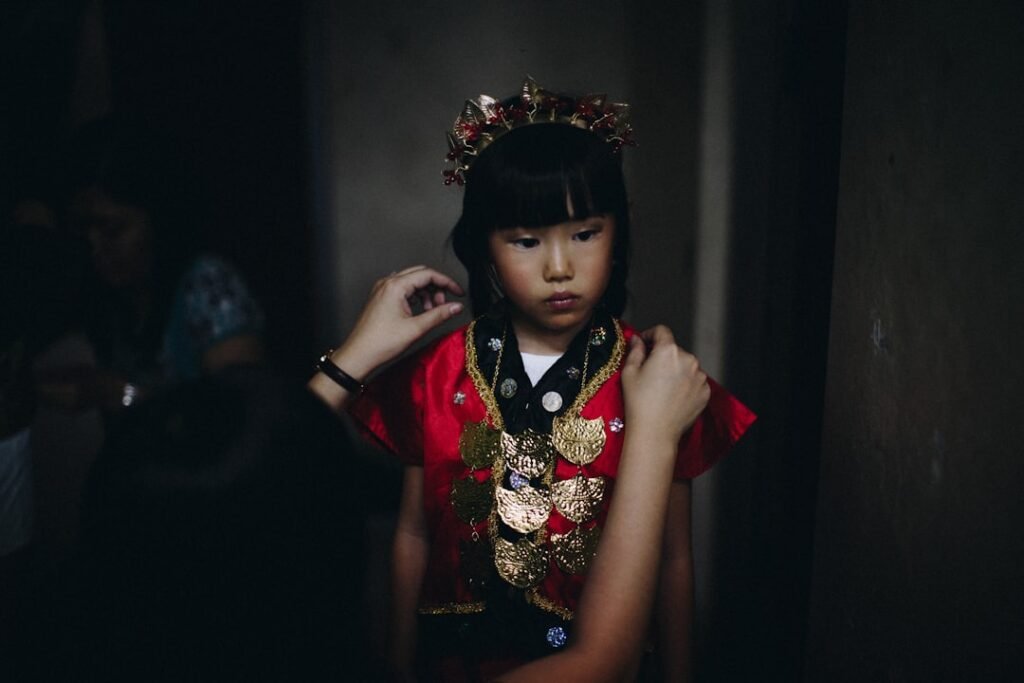In an increasingly interconnected world, the ability to communicate in Mandarin has become a significant asset. As the most spoken language globally, with over a billion native speakers, Mandarin is not just a means of communication; it is a gateway to understanding one of the world’s largest economies. China’s rapid economic growth has positioned it as a key player on the global stage, making Mandarin proficiency an invaluable skill for anyone looking to engage in international business, diplomacy, or cultural exchange.
Companies are actively seeking individuals who can bridge the language gap, and those with Mandarin skills often find themselves at a distinct advantage in the job market. Moreover, the importance of Mandarin extends beyond mere economic considerations. As China continues to expand its influence in various sectors, including technology, finance, and trade, understanding the language can provide insights into the culture and values that drive this powerhouse nation.
This cultural literacy is essential for fostering meaningful relationships and collaborations in both personal and professional contexts. Thus, equipping oneself with Mandarin skills is not merely about learning a language; it is about embracing a broader worldview that acknowledges the significance of China in today’s global landscape. Spaces are filling up fast! Register your child for Chinese Winter Camp at the LC Chinese School in Oslo today.
Table of Contents
ToggleSummary
- Mandarin skills are increasingly important in today’s global economy, with China’s growing influence in business and trade.
- Learning Mandarin can benefit your child’s future by opening up opportunities for international careers and business connections.
- The cognitive and academic benefits of learning Mandarin include improved memory, problem-solving skills, and academic performance.
- Introducing Mandarin to your child at a young age can be done through immersion, language classes, or hiring a Mandarin-speaking nanny.
- Choosing the right Mandarin language program for your child involves considering the teaching approach, class size, and opportunities for cultural immersion.
How Learning Mandarin Can Benefit Your Child’s Future
Learning Mandarin can profoundly impact a child’s future, opening doors to numerous opportunities that may otherwise remain closed. As the global economy continues to evolve, proficiency in Mandarin can enhance a child’s employability and career prospects. Many industries are increasingly recognising the value of bilingual employees who can navigate both Western and Eastern markets.
By learning Mandarin at a young age, children can position themselves favourably in a competitive job market, where language skills are often a deciding factor in hiring decisions. Additionally, learning Mandarin fosters cognitive development and critical thinking skills. Studies have shown that bilingual children tend to perform better academically, as they develop enhanced problem-solving abilities and creativity.
The complexity of Mandarin, with its tonal nature and intricate characters, challenges young learners in unique ways, promoting mental agility and resilience. As children engage with this rich language, they also cultivate a sense of discipline and perseverance—qualities that will serve them well throughout their lives.
The Cognitive and Academic Benefits of Learning Mandarin

The cognitive benefits of learning Mandarin are well-documented and extend far beyond mere language acquisition. Research indicates that bilingualism can lead to improved memory, better multitasking abilities, and enhanced overall cognitive function. The process of learning Mandarin, with its distinct phonetics and writing system, stimulates different areas of the brain, encouraging neural connections that may not be activated through monolingual education.
This cognitive engagement can result in heightened analytical skills and improved performance in other academic subjects. Furthermore, studies have shown that children who learn Mandarin often excel in mathematics and science. The logical structure of the language, combined with its emphasis on patterns and relationships, aligns well with mathematical concepts.
As children learn to navigate the complexities of Mandarin, they simultaneously develop skills that are transferable to other disciplines. This cross-disciplinary advantage not only boosts academic performance but also instils a lifelong love for learning.
How to Introduce Mandarin to Your Child at a Young Age
Introducing Mandarin to children at a young age can be both enjoyable and effective. The key is to create a positive and engaging learning environment that fosters curiosity and enthusiasm for the language. One effective approach is to incorporate Mandarin into daily routines through songs, games, and storytelling.
Children are naturally inclined to learn through play, so using interactive methods can make the process feel less like a chore and more like an adventure. Parents can also leverage multimedia resources such as educational apps, cartoons, and music to immerse their children in the language. These tools not only provide exposure to Mandarin but also help children develop listening skills and pronunciation from an early age.
Additionally, enrolling children in structured language classes or camps—such as the Chinese Winter Camp at the LC Chinese School in Oslo—can provide them with formal instruction while allowing them to interact with peers who share similar interests in learning Mandarin.
Choosing the Right Mandarin Language Program for Your Child
Selecting an appropriate Mandarin language programme is crucial for ensuring that your child receives quality instruction tailored to their needs. When evaluating programmes, consider factors such as the teaching methodology, class size, and the qualifications of the instructors. A programme that emphasises interactive learning and cultural immersion will likely be more effective than one that relies solely on rote memorisation.
The Chinese Winter Camp at the LC Chinese School in Oslo exemplifies an excellent choice for parents seeking a comprehensive language experience for their children. This camp not only focuses on language acquisition but also incorporates cultural activities that enrich the learning experience. By participating in such programmes, children can develop their language skills while gaining insights into Chinese traditions and customs—an essential aspect of truly understanding any language.
The Role of Technology in Learning Mandarin

In today’s digital age, technology plays a pivotal role in language learning. Various online platforms and applications offer innovative ways for children to engage with Mandarin outside of traditional classroom settings. These resources often include interactive exercises, games, and even virtual reality experiences that make learning more dynamic and enjoyable.
Moreover, technology facilitates access to native speakers through language exchange platforms or online tutoring services. This exposure allows children to practice their speaking skills in real-time while receiving immediate feedback from fluent speakers. By integrating technology into their language learning journey, children can enhance their proficiency while developing digital literacy skills that are increasingly important in our technology-driven world.
Creating a Mandarin Language Environment at Home
Creating a supportive environment at home is essential for reinforcing your child’s Mandarin language skills. One effective strategy is to incorporate Mandarin into everyday life by labelling household items with their Chinese names or setting aside specific times for family members to communicate exclusively in Mandarin. This practice not only reinforces vocabulary but also normalises the use of the language within the family context.
Additionally, parents can encourage their children to engage with Mandarin media—such as books, films, or music—during leisure time. By exposing children to authentic materials, they can develop listening comprehension skills while enjoying stories or songs that resonate with them. This immersive approach helps solidify their understanding of the language while fostering a genuine interest in Chinese culture.
Encouraging Cultural Understanding and Appreciation through Mandarin
Learning Mandarin is not solely about mastering vocabulary and grammar; it is also an opportunity to explore and appreciate Chinese culture. Encouraging cultural understanding can significantly enhance your child’s language learning experience by providing context for what they are studying. Parents can introduce their children to Chinese festivals, cuisine, art forms, and history through various activities or outings.
Participating in cultural events or community celebrations can further enrich this experience. For instance, attending Chinese New Year festivities or visiting local exhibitions showcasing Chinese art can help children connect their language skills with real-world cultural practices. This holistic approach fosters not only linguistic proficiency but also empathy and respect for diverse cultures—qualities that are invaluable in our global society.
Overcoming Challenges in Learning Mandarin
While learning Mandarin offers numerous benefits, it is not without its challenges. The tonal nature of the language can be particularly daunting for beginners; mispronouncing a word can lead to misunderstandings or completely different meanings. Additionally, mastering the intricate writing system requires dedication and practice.
However, these challenges should not deter learners; rather, they should be viewed as opportunities for growth. To overcome these obstacles, it is essential to maintain a positive attitude towards mistakes as part of the learning process. Encouraging resilience and perseverance will help children navigate difficulties more effectively.
Moreover, seeking support from teachers or peers can provide valuable guidance and motivation during challenging times.
The Role of Mandarin in Higher Education and Career Opportunities
As students progress through their educational journeys, proficiency in Mandarin can significantly enhance their prospects for higher education and career advancement. Many universities now offer programmes specifically focused on Chinese studies or international relations with an emphasis on China. Students who possess strong Mandarin skills are often preferred candidates for scholarships or internships that require cross-cultural communication.
In terms of career opportunities, industries such as finance, technology, tourism, and education are increasingly seeking professionals who can communicate effectively in Mandarin. As globalisation continues to shape the job market, individuals who are bilingual will find themselves well-positioned for success in various fields. Thus, investing time and effort into learning Mandarin can yield substantial returns throughout one’s academic and professional life.
Tips for Supporting Your Child’s Mandarin Language Learning Journey
Supporting your child’s journey in learning Mandarin requires patience, encouragement, and creativity. One effective strategy is to set realistic goals together—whether it’s mastering a certain number of characters each week or being able to hold a basic conversation by a specific date. Celebrating these milestones will help maintain motivation and foster a sense of accomplishment.
Additionally, consider joining your child in their learning process by participating in classes or activities together. This shared experience not only strengthens your bond but also demonstrates your commitment to their education. Finally, remain open-minded about your child’s interests; if they show enthusiasm for certain aspects of Chinese culture or language—be it calligraphy or pop music—encourage them to explore these areas further as part of their learning journey.
In conclusion, equipping children with Mandarin skills is an investment that pays dividends across various aspects of life—from academic success to career opportunities and cultural understanding. By fostering an engaging learning environment at home and choosing quality programmes like the Chinese Winter Camp at the LC Chinese School in Oslo, parents can empower their children to embrace this valuable language with confidence and enthusiasm.







